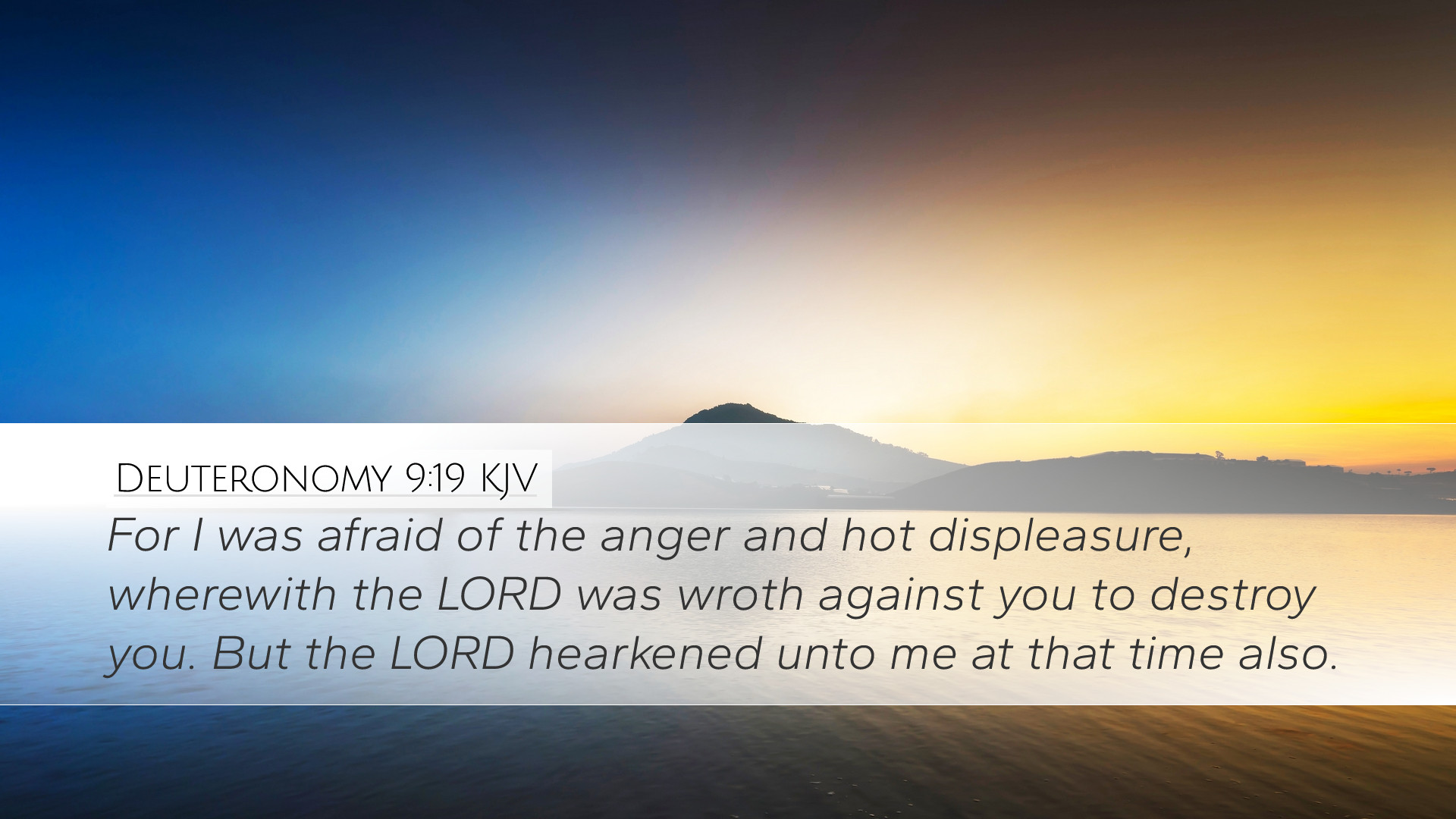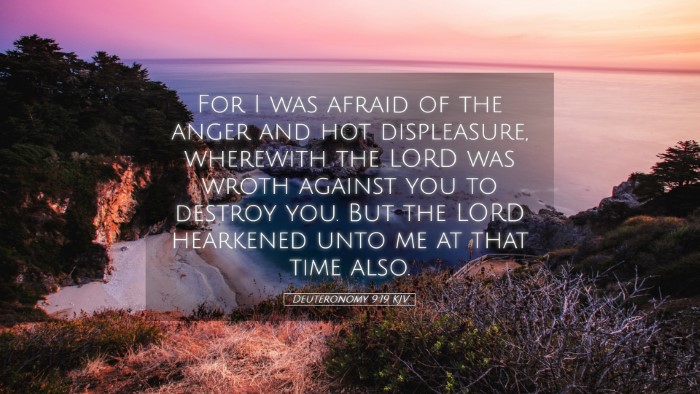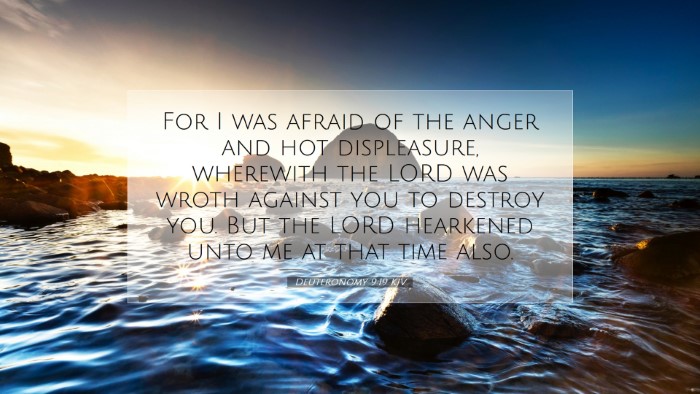Commentary on Deuteronomy 9:19
Verse: "For I was afraid of the anger and hot displeasure, wherewith the LORD was wroth against you to destroy you. But the LORD hearkened unto me at that time."
Contextual Overview
Deuteronomy 9:19 serves as a reflective moment in Moses' discourse to the Israelites. It captures the essence of Moses’ intercession for the people after their sin of idolatry with the Golden Calf. The verse articulates a deep concern for the spiritual and physical well-being of the Israelites, showcasing Moses' unique leadership qualities and profound relationship with God.
Theological Insights
-
Moses' Fear of God's Wrath:
Moses expresses genuine fear of God's anger against the Israelites. According to Matthew Henry, Moses’ fear reflects an understanding of God's holiness and the seriousness of sin. The intensity of God's wrath is underscored as he contemplates the deserved judgment upon a rebellious people.
-
The Nature of Intercession:
This verse highlights the role of Moses as an intercessor. Albert Barnes points out that intercession involves not only pleading for mercy but also a recognition of the turmoil that sin brings between God and His people. Moses' fear motivates him to seek God's mercy on behalf of the Israelites, showing the profound impact of prayer.
-
God's Response:
The phrase “the LORD hearkened unto me” illustrates God’s willingness to listen and respond to prayer. Adam Clarke emphasizes that God's readiness to forgive is a cornerstone of His character. The emphasis in this passage on God's grace in the context of sin brings hope and encouragement to believers.
Practical Applications
-
Understanding the Weight of Sin:
The passage encourages a sober reflection on the weight of sin and its consequences. Pastors and theologians can draw from this to teach congregants the importance of repentance and turning back to God, emphasizing His readiness to forgive.
-
The Importance of Prayer:
The intercessory role of Moses serves as a model for Christian ministry today. Leaders are encouraged to passionately intercede for their communities, acknowledging the need for divine mercy amidst sin and disobedience.
-
God's Justice and Mercy:
This verse illustrates the balance between God’s justice and mercy. The acknowledgment of God’s anger does not diminish His compassion but rather illustrates the depth of His love, as described by Barnes. Understanding this dynamic is crucial for anyone studying the nature of God.
Historical Perspective
Historically, this verse situates itself during a pivotal point in Israel's journey to the Promised Land. The Israelites had witnessed God’s power and grace, yet chose to rebel. Matthew Henry notes that Moses recalls this moment to reaffirm God’s faithfulness amid their unfaithfulness. It serves as a warning for future generations about the consequences of turning away from God.
Conclusion
Deuteronomy 9:19 offers rich insights into the character of both God and Moses, serving to remind believers of the dangers of sin and the power of intercession. As Christ is the ultimate intercessor, this verse points the Church toward the hope found in eternal grace, urging Christians to follow the example set forth by Moses in humility, prayer, and reliance on God's mercy.


